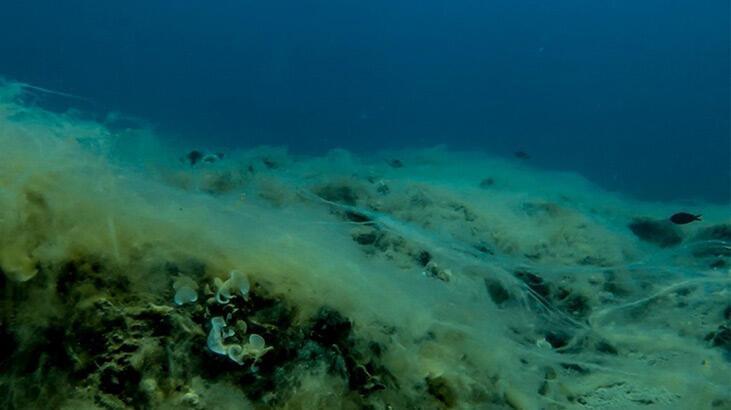
Turkey could have launched an eco-fishing approach in the wake of the marine mucilage that invaded Turkish seas early summer due to rising temperatures and pollution, but it missed the opportunity, according to an expert.
“One of the articles on Turkey’s Mucilage Action Plan is about the transition to an ecosystem-based fisheries management in the Marmara Sea,” said Mustafa Sarı, an expert from the science board established to coordinate efforts to fight against the problem.
But nothing has been done to implement this issue, he added.
Fishing in the partly-landlocked sea has become almost impossible as the seabed has been covered with a jelly-like layer of slime, an amassing of microorganisms thriving on mostly pollution, over the past few months, but it sank to the bottom of the sea over time.
Noting that the problem of mucilage was ignored when the fishing season started on Sept. 1, the academic underlined that the biggest problem caused by the threat is now related to the fishing industry.
“The mucilage did a lot of damage to the fishers. They sail out to sea, but come back empty-handed,” Sarı said, adding that something good could have come out of this situation, but that the opportunity was missed because the action plan was not followed.
“We had to take precautions, switch to sustainable fishing, we didn’t,” he said, expressing his hopes that the Agriculture and Forestry Ministry would prepare a rapid action plan for the transition to sustainable fisheries in a very short time.
The fishing industry in Turkish waters had already been suffering from climate change, shrinking the size of bluefish and anchovy, two of the most popular fish dishes in the country.
No sea products came out of the fishing nets this season when the seasonal data of 40 years was evaluated, Sarı added.